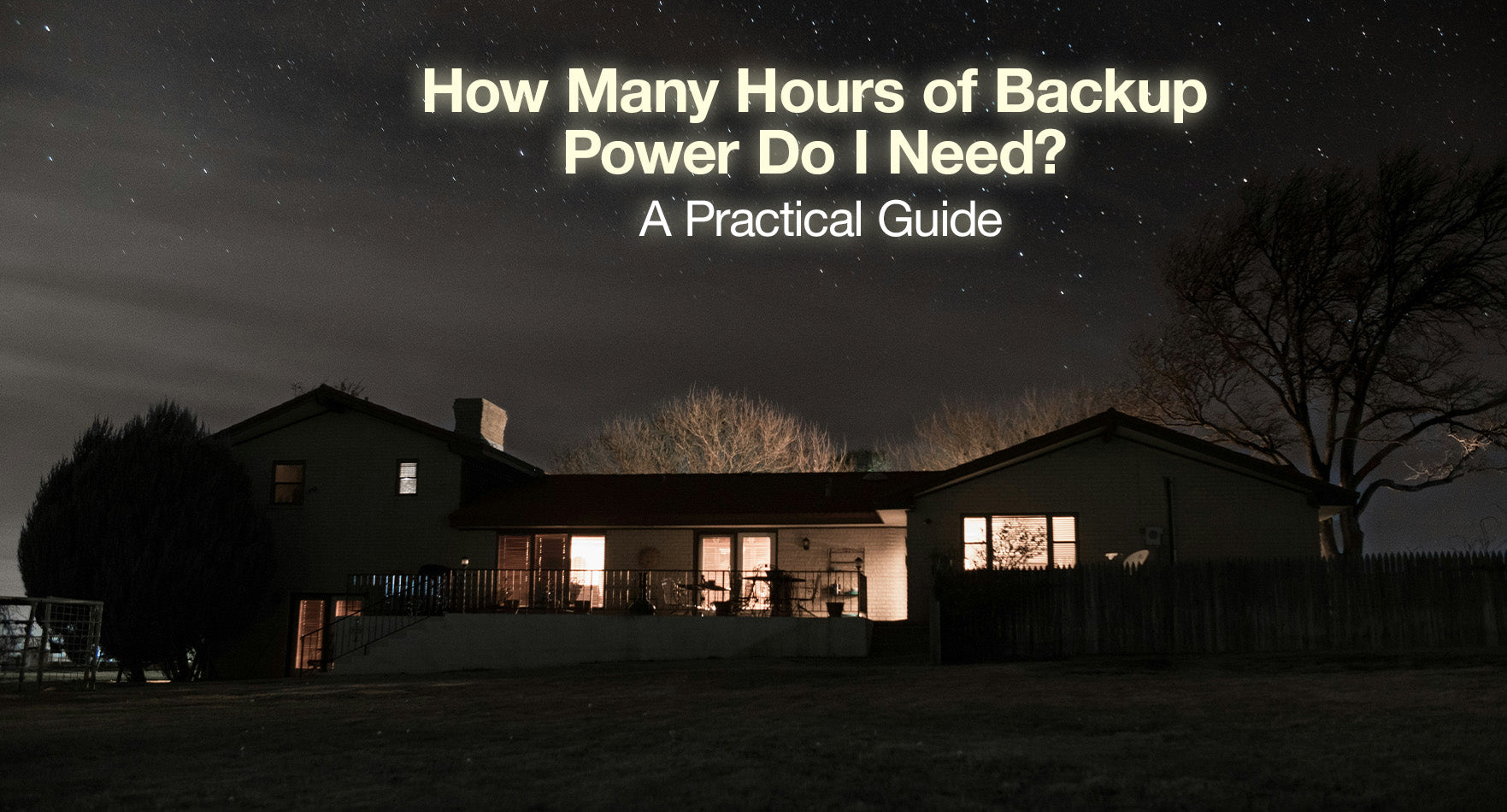Determining how many hours of backup power you need is crucial for selecting the right generator or backup power system for your home, business, or outdoor activities. The number of hours you'll require depends on various factors, including your power needs, the typical duration of power outages in your area, and the importance of continuous power for your operations or lifestyle. This guide will help you assess these factors and calculate your backup power needs accurately.
Factors to Consider
-
Power Consumption
- Identify Essential Appliances: List all the essential appliances and equipment you need to power during an outage. This typically includes refrigerators, lights, medical devices, communication devices, and possibly heating or cooling systems.
- Calculate Wattage: Determine the wattage requirements of each appliance. Use the running wattage and consider the surge wattage for appliances that require extra power to start.
-
Duration of Power Outages
- Historical Data: Review the history of power outages in your area. Local utility companies often provide this information. Consider the average duration and frequency of outages.
- Worst-Case Scenarios: Plan for the longest outages you might experience, such as those caused by severe weather events or natural disasters.
-
Importance of Continuous Power
- Critical Needs: If you rely on medical equipment or work from home, continuous power may be more critical. Businesses that provide essential services also need to minimize downtime.
- Comfort and Convenience: For non-critical needs, such as entertainment or non-essential lighting, you may opt for shorter backup power duration.
Steps to Calculate Backup Power Needs
-
List Your Essential Appliances
- Example:
- Refrigerator: 700 watts
- LED lights: 60 watts
- Laptop: 50 watts
- Phone charger: 10 watts
- Heater: 1500 watts
- Example:
-
Determine Total Wattage
- Add up the wattage of all essential appliances.
- Example: 700 + 60 + 50 + 10 + 1500 = 2320 watts
-
Estimate Hours of Use
- Decide how many hours you need each appliance to run during an outage.
- Example:
- Refrigerator: 24 hours
- LED lights: 5 hours
- Laptop: 4 hours
- Phone charger: 2 hours
- Heater: 6 hours
-
Calculate Total Watt-Hours Needed
- Multiply the wattage of each appliance by the number of hours it will run.
- Example:
- Refrigerator: 700 watts * 24 hours = 16800 watt-hours
- LED lights: 60 watts * 5 hours = 300 watt-hours
- Laptop: 50 watts * 4 hours = 200 watt-hours
- Phone charger: 10 watts * 2 hours = 20 watt-hours
- Heater: 1500 watts * 6 hours = 9000 watt-hours
- Total Watt-Hours: 16800 + 300 + 200 + 20 + 9000 = 26320 watt-hours
-
Convert to Kilowatt-Hours (kWh)
- Divide the total watt-hours by 1000.
- Example: 26320 watt-hours / 1000 = 26.32 kWh
Selecting a Generator or Backup Power System
-
Generator Size
- Choose a generator that can handle your total wattage needs (2320 watts in the example) and provides enough runtime to cover the required hours of use (26.32 kWh in the example).
- Consider fuel efficiency and tank size to ensure the generator can run for the desired duration without frequent refueling.
-
Battery Backup System
- If opting for a battery backup system, ensure the total battery capacity meets your kilowatt-hour requirement (26.32 kWh in the example).
- Consider expandable systems if you anticipate future increases in power needs.
-
Hybrid Systems
- Hybrid systems combining solar panels, batteries, and generators can provide sustainable and long-term backup power solutions. Ensure the combined capacity meets your total power and duration needs.
Determining how many hours of backup power you need involves assessing your essential power consumption, understanding the typical duration of power outages, and prioritizing your power needs. By following the steps outlined in this guide, you can calculate your backup power requirements accurately and select the right generator or backup power system to keep your home or business running smoothly during outages. Proper planning ensures that you are well-prepared for any power interruptions, providing peace of mind and uninterrupted operations.










